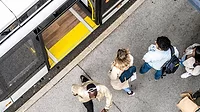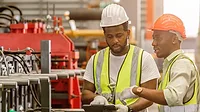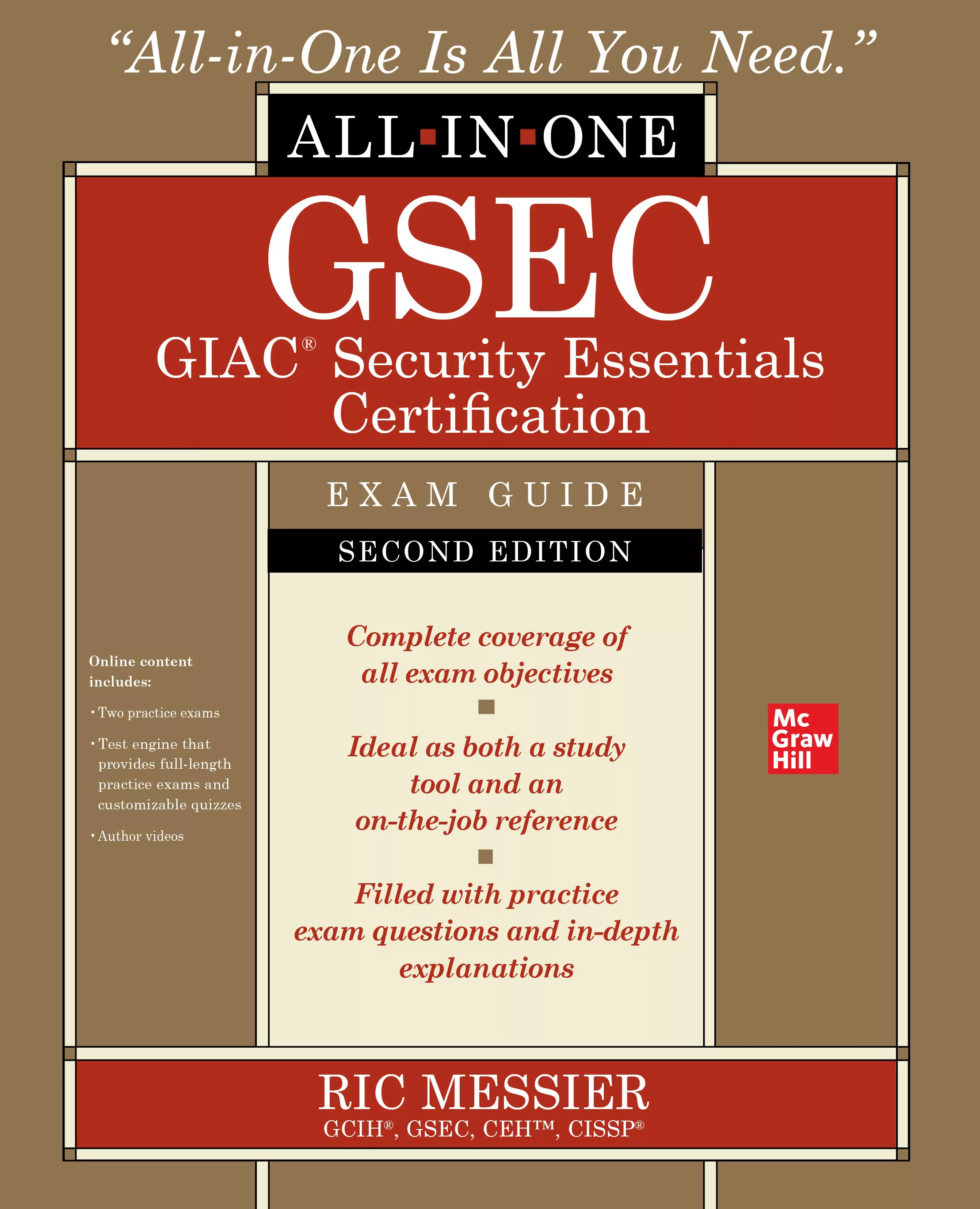Security by Design
Covering all the bases with security design
This year's Elliot A. Boxerbaum award winner, security design firm Electronic Design Group (EDG), focused on creating a comprehensive security program from start to finish at the King Abdullah Financial District in Saudi Arabia.
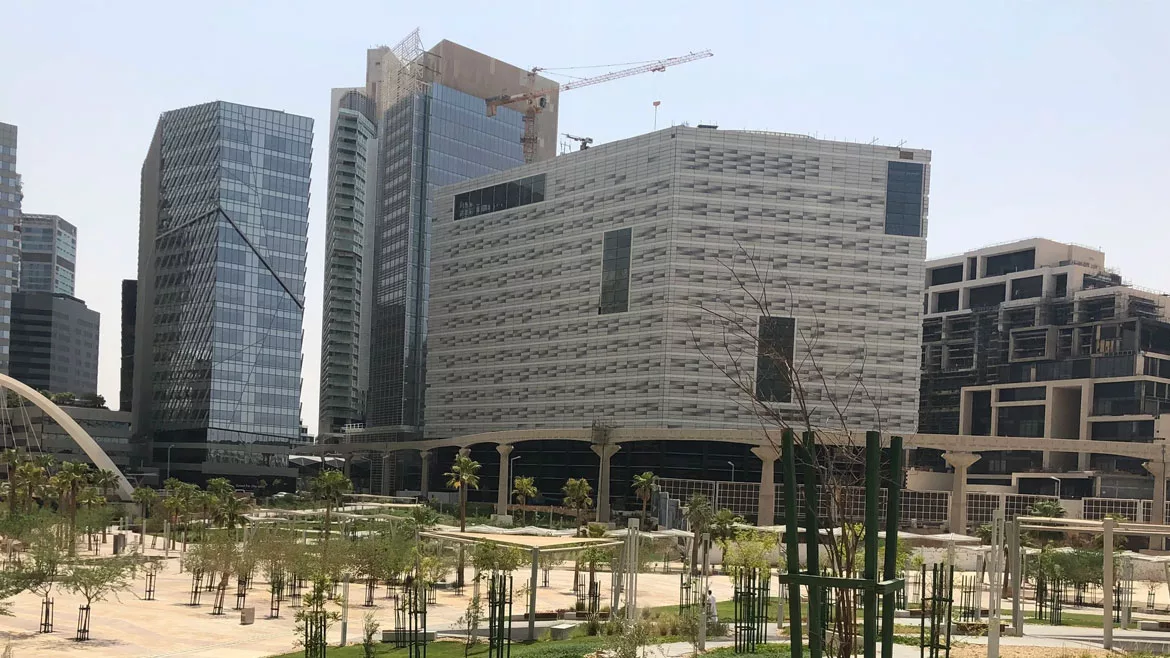
Images courtesy of Electronic Design Group
With 86 towers reaching into the sky, the King Abdullah Financial District is a city within a city that is redefining Riyadh’s skyline.
A mixed-use financial district, the King Abdullah Financial District (KAFD) located in Riyadh, Saudi Arabia is nestled between three major highways, and the project presented a plethora of security challenges during its construction. The largescale development project encompasses 1.6 million square meters of space comprised of residential, commercial and office buildings, in addition to public parks, a metro station, conference center and more.
“Everything we’ve ever learned over our 20 years of experience was poured into this program,” says Electronic Design Group President Paul Rizk.
The KAFD project had been under development for several years, with some of the buildings already built and operational. However, as the process began ramping up toward completion, technology consultancy and engineering firm Electronic Design Group (EDG) stepped up to the challenge.
“At that stage, the security infrastructure wasn’t completed, so they called us up to analyze and do a general assessment for the entire plan,” Rizk says.
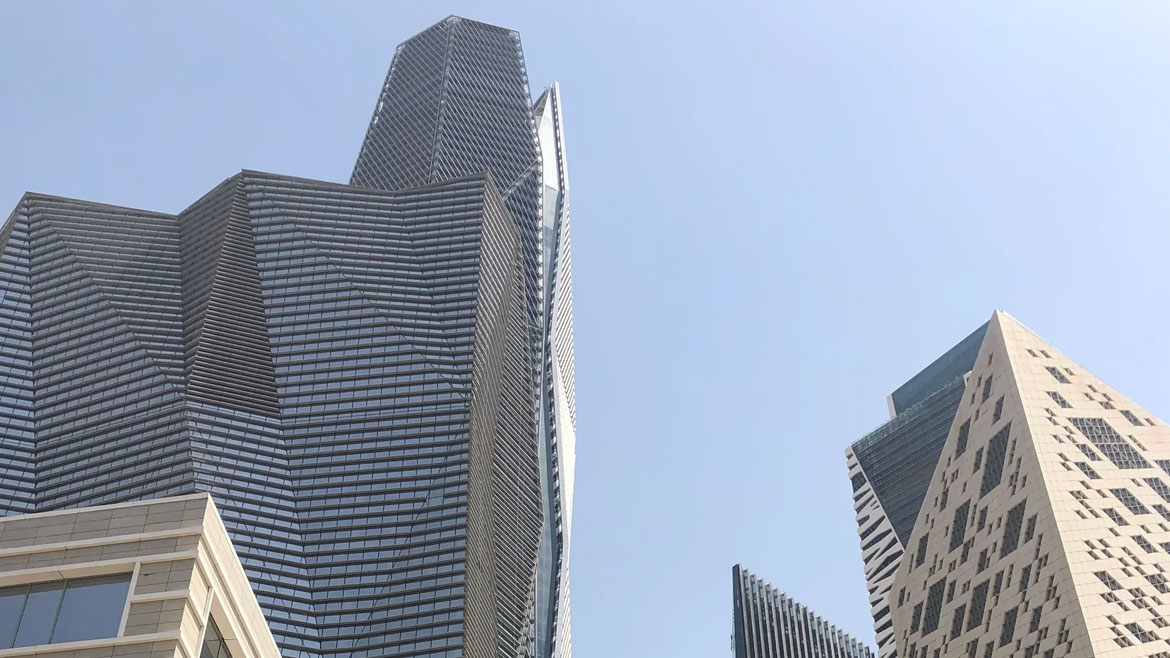
As the physical security lead consultant on the project, the EDG team was tasked with preparing the following:
- Security concept of design (SCD)
- The security concept of operations (SECONOPS)
- Security risk assessment
- Blast impact analysis
- Security master plan
- Security evacuation plan and procedure
- Emergency response plan and procedures
- Emergency contingency planning
- Public realm security detailed design
- Security crisis management plan (CMP)
- Security business continuity plan (BCP)
- All security systems specifications, main control and command center and digital communication infrastructure.
The team worked tirelessly to cover all stages of the security system design cycle and ensured the final security system was tailored to the specific needs of the site and designed to provide the maximum protection against potential threats.
In October, Electronic Design Group (EDG) received the Elliot A. Boxerbaum award for their security design work for the King Abdullah Financial District (KAFD).
Overseeing the development is the King Abdullah Financial District Development and Management Company (KAFD DMC), which is fully owned by the Public Investment Fund (PIF) of the Kingdom of Saudi Arabia. Rizk says the massive district not only contained a central bank, conference center and retail space, it also had an open area for festivals and music gatherings.
“As you can imagine, this project had pretty much every single thing that you can ever think of designing,” he says.
Maintaining security and access during construction
When EDG began work on KAFD, construction was still ongoing for a large portion of the district, including the conference center, metro stations and many public areas. However, a handful of buildings were not only already built but operational, including the central bank. Integrating the current security technology was a priority the team took into consideration when designing the security plan.
“Part of our scope was a thorough auditing, assessment and inspection for all the existing systems in the existing building,” Rizk says. “We came up with the report with what needs to be changed and upgraded in order to bring it up to speed with the new systems that we were designing.”
One important aspect of the security plan was maintaining public access to certain areas while also limiting access to others without the features becoming too intrusive to residents and visitors.
“One of the key challenges in that program is the client wanted to keep some areas as an open space for the public, and then the retail part, and this open park that was in the middle of all these important buildings,” Rizk says.
To strike that balance, Rizk says a variety of security technologies were implemented such as cameras, facial recognition and advanced video analytics for assistance with crowd management, footfall analysis and heat mapping.
“We wanted to make sure that people feel they are in a safe, open and friendly environment and at the same time manage risk,” Rizk says. “It was a top priority for KAFD to balance security and accessibility in public areas.”
Striking a balance
Rizk said it can always be challenging working on projects with multiple stakeholders, all with different perspectives and ideas for what they’d like to see implemented, at times contradictory to each other. However, as the consultant, it was his team’s directive to make sure the facilities and procedures were in compliance and buildings were as secure and safe as possible.
“The project was fun and challenging because the end-user in this case was multiple agencies,” Rizk says.
Rizk recalls many workshops where several people voiced their own wish lists.
“We had to manage all these expectations and make sure that we could entertain as many requests as we possibly could,” he says. “We’re not there to please everyone. We’re there to apply the best practices of the security industry.”
A new approach
The location of KAFD also brought unique challenges, Rizk adds. In addition to the district being surrounded by highways, Saudi Arabia has been the target of terrorist attacks over the years, which were all aspects that had to be taken into consideration for the security design plans.
“We had to go outside the realm of normal security to come up with techniques to speed up the process without taking any risks,” Rizk says.
One of the key innovations EDG brought to the project was developing separate locations where trucks were inspected and cleared for delivery, utilizing technologies such as license plate reader (LPR) verifications and radio frequency identification (RFID).
“The client had a lot of trust in us to give us the ultimate scope from start to end, and I believe we have proved to the clients we have enough expertise, seriousness and confidence to carry out that scope,” Rizk says. “We are a boutique, medium-sized organization. We take our jobs very seriously. We make sure that we hand over each project to the highest standards of the industry.”
Looking for a reprint of this article?
From high-res PDFs to custom plaques, order your copy today!




